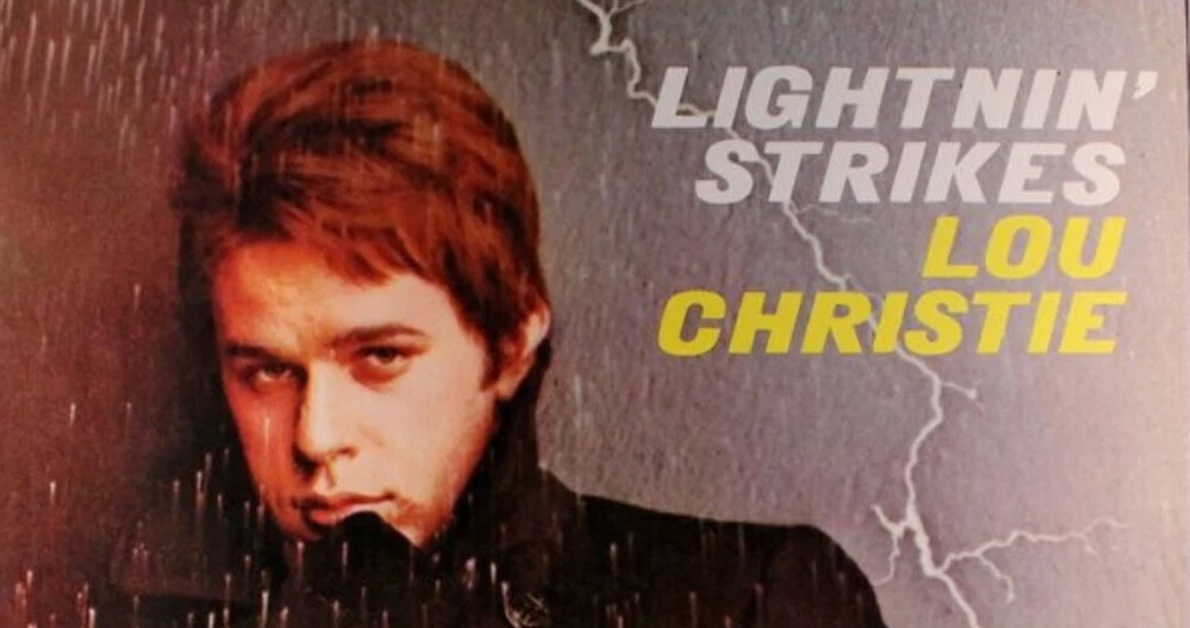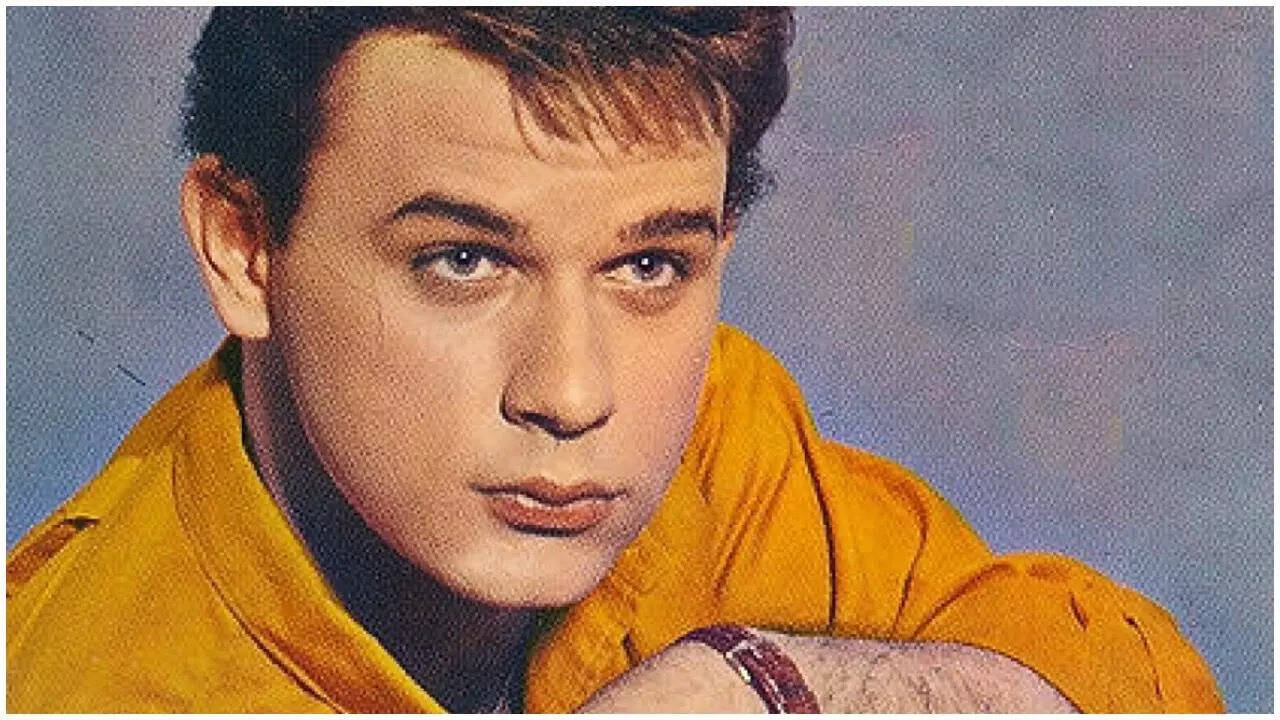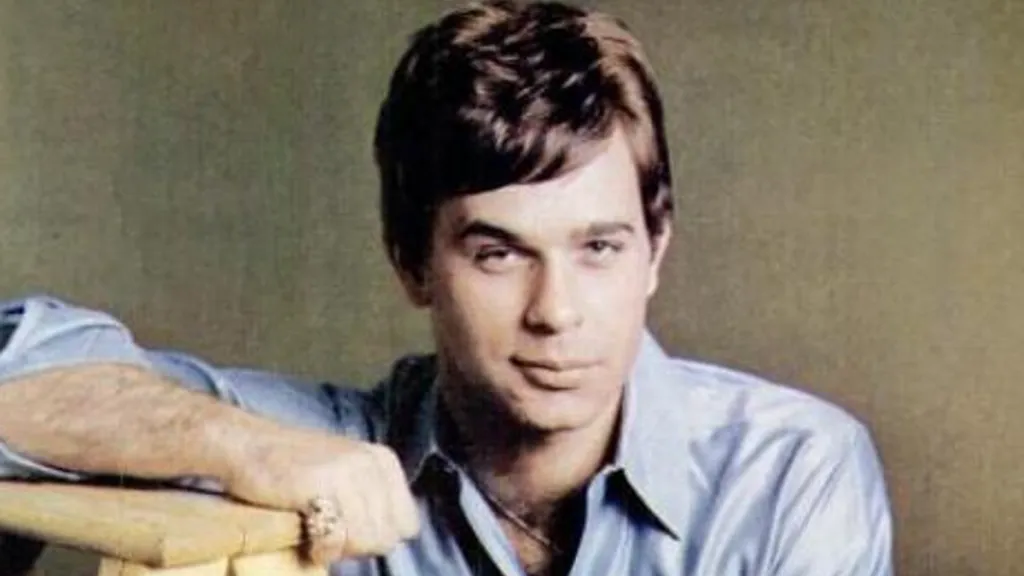
The music world bids a fond and poignant farewell to Lou Christie, the iconic pop singer whose voice climbed to unforgettable heights and soundtracked a generation. Known for that absolutely distinctive soaring falsetto, Christie passed away on Wednesday, June 18, 2025, at the age of 82. His wife, Francesca, shared the sad news, stating that he died at their home in Pittsburgh after what was described as a “short illness.”
Lugee Alfredo Giovanni Sacco was born on February 19, 1943, in Glenwillard, Pennsylvania, just outside of Pittsburgh. Even from his early days, music seemed to be his destiny, though perhaps not always on the path he first envisioned. His formative years led him to a truly unique collaboration that would shape his career.

At the tender age of 15, while just a ninth-grader at Moon Area High School, young Lugee Sacco formed an extraordinary friendship with Twyla Herbert, a classically trained musician almost 22 years his senior. This connection wasn’t just a friendship; it blossomed into one of the most prolific and fascinating songwriting partnerships in American pop history. Their creative spark ignited, and they would go on to write hundreds of songs together over the ensuing decades, a testament to their unparalleled artistic chemistry.
Before the name Lou Christie became synonymous with chart-topping hits, he even had a local success story. As a high schooler in suburban Pittsburgh, he fronted a group called Lugee & the Lions. Intriguingly, this early band included Twyla Herbert’s daughter, showcasing just how intertwined their lives and music had become even then.

It wasn’t until 1962 that Lugee Sacco embraced the stage name the world would come to know. Convinced by Pittsburgh music executive Nick Cenci, who would also produce his first single under this new moniker, the transformation to Lou Christie was complete. That first single, “The Gypsy Cried,” emerged that same year, and though it initially charted modestly, its eventual pickup by Morris Levy and Roulette Records propelled it to No. 24 on the Hot 100 in March 1963, selling a remarkable million records.
The momentum continued swiftly in 1963 with another collaboration born from the Christie-Herbert partnership: “Two Faces Have I.” This catchy tune followed quickly on the heels of his first success, peaking at an impressive No. 6 on the Hot 100 just three months later. This early success firmly established Lou Christie as a rising star in the American pop landscape.

Christie found himself navigating the tail end of the initial wave of teen idols that dominated the early 1960s. He reflected on this period, noting, “They started disappearing. It was so interesting that I kept going.” He felt he was perpetually “between the cracks of rock ‘n’ roll,” viewing himself as “The missing link” between the teen idol era and the British Invasion that was just beginning to take hold.
He vividly recalled touring extensively during these years, including a coveted spot on Clark’s Caravan of Stars tour. He described doing “32 one-nighters in a row, often sleeping on the bus,” a true road warrior’s life. His tour companions were a who’s who of the era’s stars, a surreal experience for the young singer.

“I was sitting on the bus with Diana Ross. She was sitting on the seat next to me. She and I were bus buddies. I always put it that way,” he recounted. “Here I was, sitting next to all those people who, six months ago I bought their records and watched them on American Bandstand. Now, all of a sudden I’m one of them.” He fondly remembered being alongside “Gene Pitney and Johnny Tillotson, the Supremes, Paul and Paula, the Crystals, the Ronettes, Fabian, Frankie Avalon,” considering them his “graduating class” that remained so “today.”
Despite his early success, his career took a temporary detour when he spent two years serving in the U.S. Army. This break might have stalled others, but Lou Christie’s talent and partnership with Twyla Herbert were simply too strong to be sidelined for long. Upon his return, he was ready to unleash the songs that would define his legacy.

Then came the monumental year of 1966, a period that saw Lou Christie reach the absolute apex of his professional success. This was the year the world was hit by the electrifying power of “Lightnin’ Strikes,” a song that remains an enduring classic. Released by MGM Records in December 1965, this track, penned by Christie and Herbert, featured arrangements, conducting, and production handled expertly by Charles Calello. It also boasted memorable backing vocals from The Delicates, consisting of Bernadette Carroll, Peggy Santiglia, and Denise Ferri.
The story behind “Lightnin’ Strikes”‘ rise to the top is itself legendary. When Christie and Herbert first presented it to MGM label head Lenny Shear, he famously “threw it in the wastebasket and said it was a piece of crap!” Undeterred, they took matters into their own hands. Christie recalled, “So we put up our own money to get it played around the country, and it started taking off once it got played.” Their belief in the song paid off spectacularly.

Just two months after its release, perfectly timed with Christie’s 23rd birthday, “Lightnin’ Strikes” rocketed to the number one spot on the Billboard Hot 100. It became the defining hit of his career, instantly recognizable for its driving beat, catchy melody, and, of course, that phenomenal, sky-high falsetto hook. It solidified his unique vocal signature in the annals of pop music history.
But 1966 wasn’t finished with Lou Christie yet. That spring, he released another song from his partnership with Twyla Herbert that would also leave an indelible mark, albeit a slightly more controversial one: “Rhapsody in the Rain.” This track climbed to No. 16 on the Hot 100, a significant hit despite facing considerable hurdles.

As we say goodbye to this pop legend, we celebrate the incredible journey of Lugee Alfredo Giovanni Sacco, the man who became Lou Christie. His life was a testament to the power of collaboration, the magic of a unique voice, and the enduring appeal of well-crafted pop songs. He leaves behind a discography filled with gems, a legacy of innovation, and the gratitude of countless fans who found joy in his music. Rest in peace, Lou Christie; your music will echo forever.




